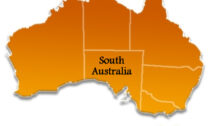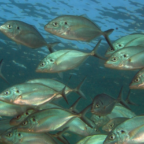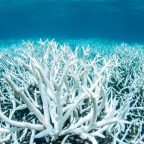
This week marks South Australia becoming the first State or Territory in Australia to ban single-use plastic products with drinking straws, stirrers and cutlery to be prohibited from sale, supply or distribution across the state.
The legislation was passed in Parliament last year with South Australia’s Single-use and Other Plastic Products (Waste Avoidance) Act 2020 becoming the first legislation of its kind in Australia.
Following this initial phase of plastic banning, on 1st March 2022, oxo-degradable plastic products, as well as expanded polystyrene cups, bowls, plates and clamshell containers will also be banned.
The Australian Marine Conservation Society (AMCS) has welcomed the beginning of South Australia’s ban on single-use plastics today, saying the ban will save the lives of whales and dolphins.
Shane Cucow, plastics spokesperson for the AMCS thanked the South Australian Government for responding to ocean lovers, who have been speaking up for years about the deadly plastic scourge killing countless seabirds, dolphins and whales highlighting “the sharp pieces of these products can cause serious internal injuries or poisoning if eaten. They can get stuck in airways or cause life-threatening blockages.
“With safe, earth friendly alternatives now available, it’s time to ditch these killer plastics across all of Australia.
“Our oceans know no borders, we need nation-wide action to truly stem the flow of plastic.
South Australian Minister for Environment and Water David Speirs notes “by being a first mover nationally we’ve already seen businesses who manufacture re-useable and compostable alternatives start to set up in South Australia, which means our single-use plastic ban will have significant economic benefits and create local jobs, as well as being good for the environment.
“We will continue to consider more products such as takeaway coffee cups, plastic barrier bags and other takeaway food service items as market demand increases and other sustainable alternatives become available.
“We are protecting our environment for future generations, reducing marine and other litter, and promoting the circular economy with a shift away from a single-use, throwaway mindset.
“Our legislation has been developed with the help of our Single-Use Plastics Taskforce which has representation from 15 different organisations, including people living with a disability.
“This consultation has enabled us to develop an exemption so that single-use plastic drinking straws can be accessed by people who require them due to a disability or health need.”
AMCS’s Cucow is also calling on the South Australian Government to match the ambition of Western Australia, who has also committed to ban plastics such as heavyweight plastic bags, cotton buds, fruit and vegetable bags and helium balloon releases in coming years. The Western Australian Government has committed to phase out single-use plastic plates, straws, cutlery, drink stirrers by 2023.
Cucow calls on “all States and Territories to follow SA’s lead and pass their own laws banning single use plastics. As custodians of the most beautiful and diverse oceans on the planet, together we can be a global leader in the fight against plastic.”
Other states are either in the process of committing to such a ban or still considering their options.
On Saturday 27th March, the Victorian Government announced they will move to implement a ban on single-use plastics by 2023, which will include single-use plastic straws, cutlery, plates, drink stirrers, polystyrene food and drink containers, and plastic cotton bud sticks.
Queensland’s Parliament is currently considering a bill to ban single-use plastic straws, cutlery, drink-stirrers and disposable plastic plates/bowls.
The ACT Parliament is currently considering a bill to ban single-use plastic cutlery, drink stirrers and polystyrene food and beverage containers, with the Government indicating it would commence 1st July 2021.
The New South Wales Government recently completed public consultations that canvassed the idea of a ban on single-use plastics. They are yet to announce their plans.
Tasmania and the Northern Territory have made no commitments to ban single-use plastics.
The South Australian Government legislation does not prevent members of the community from bringing their own straws to cafes, and any business can choose to supply individual single-use plastic drinking straws on request, due to disability or medical needs.
Prescribed businesses including pharmacies, Local Government offices, charities, and medical, dental and care facilities are able to sell and supply packs of straws for these purposes.
Bioplastics, like PLA (Polylactic Acid), that can be labelled compostable, are also banned as these can only be composted under strict industrial conditions.
AMCS highlights that while plastic pollution is responsible for killing countless seabirds, dolphins and whales, it has also been associated with disease on coral reefs. A recent study of the effects of plastic on 124,000 reef-building corals from 159 reefs in the Asia Pacific Region (including Palm Islands, Whitsunday Islands and Keppel Islands) found the likelihood of disease increases from 4% to 89% when corals are in contact with plastic.
For more information on South Australia’s initiative visit www.replacethewaste.sa.gov.au















Social Profiles